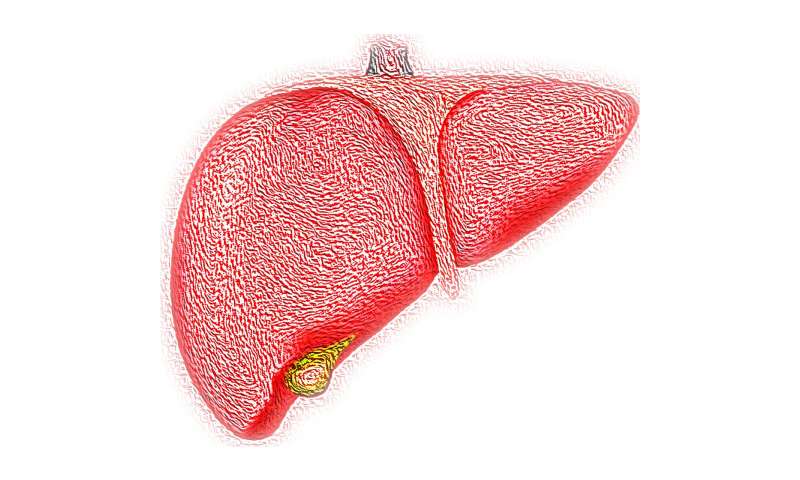
Fifty fragments of proteins, termed peptides, have been identified in the urine of liver fibrosis patients in a new study that could pave the way for a potential diagnostic urine test for the condition if further validated.
The research was led by scientists from the University of Warwick, University Hospitals Coventry and Warwickshire (UHCW), Mosaiques Diagnostics and Hannover Medical School, who have published their analysis in the journal EBioMedicine.
Liver fibrosis can be a ‘silent killer’ as sufferers usually do not experience any symptoms until very late stage, when they start to lose the liver function. Patients then typically experience jaundice, ascites (build-up of fluid in the abdomen), variceal gastrointestinal bleeding, and in some cases can result in cancerous formation in the liver.
Previous research on biopsies from fibrotic livers has shown evidence of changes of proteins in liver tissue cells. As part of his Ph.D. at the University of Warwick, Dr. Ayman Bannaga, a clinical research fellow at UHCW, investigated whether these protein changes could also be present in a patient’s urine, and whether they could act as a biomarker of the condition.
The research team used a total of 393 urine samples divided into discovery and test sets, representing individuals with various liver diseases and those with no disease present. These were investigated using an advanced technology known as capillary electrophoresis mass spectrometry, that separated out protein components in the urine at a molecular level. Following a two-step validation analysis, the researchers found fifty peptides associated with liver fibrosis in patients, mainly fragments of a protein called collagen.
When they tested a new set of patients for these fifty peptides, they correctly identified liver fibrosis patients in 84.2% of cases (sensitivity), and correctly identified those without it in 82.4% of cases (specificity).
While the results require further validation by other research teams, the researchers hope that their findings could form the basis of a simple and cost effective urine test that could spot those who have liver fibrosis before it progresses, although it may be many years before this is seen in clinical practice.
Dr. Ayman Bannaga, a Ph.D. student at Warwick Medical School, said: “A urine test is an attractive tool because it is easy to collect from patients, and so this approach can be easily applied in hospitals and GP practices. The ideal potential vision for this test would be to check the condition in people who do not have symptoms to tackle it early, through education, monitoring and medications if needed.
“There are a number of causes of liver fibrosis including viruses such as hepatitis B and C, excessive alcohol consumption, a build-up of fat in the liver, and some auto-immune diseases.”
When the liver becomes fibrotic, proteins called collagens shrink the liver, causing the liver to become smaller and stiffer and affecting its function. Fragments of these proteins, which scientists term peptides, find their way into the blood, where they will be filtrated into the kidneys and leave the body via the urine. Currently detecting these protein changes would have to be done using a biopsy, but a urine test would be much easier and less invasive for patients.
Dr. Bannaga adds: “Liver fibrosis affects people who are productive, those who drink lots of alcohol, people with sedentary lifestyles. A recent UK study done by a Bristol group showed that one in 40 people around the age of 24 years have fibrosis.”
Source: Read Full Article
